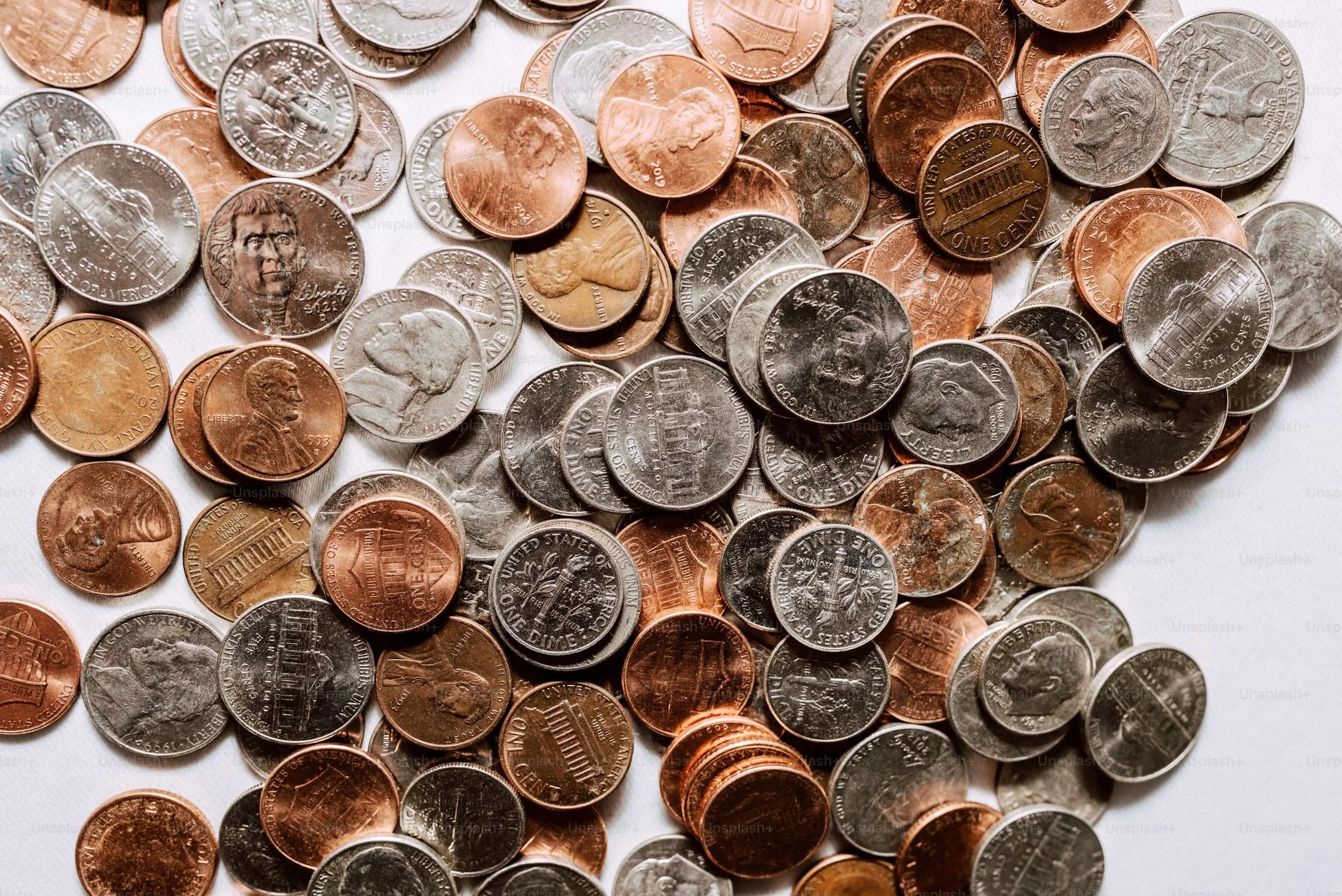An Heirloom of Grace
What my Stepfather’s coin collection taught me
Sorting through the belongings after a loved one passes is a bittersweet task. After the recent loss of my mother, my siblings and I spent some time dividing up her possessions—not only money she had saved, but also some jewelry, furniture, dishes and countless photographs. Though I was grateful for what she left us, it felt a little strange picking through her treasures, but it became a lesson in not only what she had valued, but what should be valuable to me.
The worth of one particular possession was obvious—an impressive coin collection that had belonged to my stepfather Don. After accumulating the currency over his lifetime, he left it in my mom’s care when he passed away. When Mom died, she left it to my two sisters, my stepbrother, my stepsister and me to divide between the five of us as evenly as possible. I felt privileged to receive a portion of it.
When I finally had time to comb through my share, I was awestruck. Though none of the coins stood out as exceptionally rare, many were old, some dated even before my stepdad was born. I tried to imagine him examining each one, envisioning how he might have pondered their artistry and historical significance. Appreciating the time and energy he must have devoted to his hobby, I was struck with a feeling of unworthiness. After all, the cache of coins had been assembled by someone who was not my “blood relative.” I hid the stash away in my bank safe deposit box and ruminated on whether I should even accept them.
After several days it dawned on me that such thinking might actually border on ungratefulness, if not downright disrespect. I remembered how hard Mom and Don had worked to blend two families together after they married fifty-five years ago. Despite the difficulty, they were mostly successful at uniting us into a single functioning unit under one roof. Even though my stepfather never legally adopted me or my two sisters, he took on a load of responsibility for the three of us. He embraced not only our strengths, abilities and accomplishments, but also our needs, our weaknesses and our incompetence. When it came to accountability and dependability, he rose to the occasion and assumed the role of protector to us. Despite our frequent ingratitude for it, he chose to become our guardian and make us his heirs. It wasn’t because we deserved it or demanded it or asked for it. He simply decided that it was. We became the recipients of Don’s love in action, as well as the beneficiaries of his provision.
There’s probably a great illustration in there that some pastor could use in a sermon on the subject of grace. And in fact, the nature of my relationship with my stepfather was similar to what happens when undeserving humans come to realize the kind of relationship God offers us, a relationship based on unmerited favor.
Still, receiving something so valuable that I never worked for is humbling, because even if I wanted to repay my stepdad, it’s not possible. And I am talking about a lot more than the coin collection: I can never repay him for his advice and guidance over the years, or his support of all my activities as well as those of my kids. I can’t repay him for his generous contribution to my education—not just monetarily, but also through incalculable hours of homework tutoring. Not once did he force his help on me, but rarely did he turn down a request.
It shouldn’t come as a surprise that he would take on those roles. Don witnessed an example in his own parents—his father a simple Kansas wheat farmer and his mother a soft-spoken housewife. Otherwise childless, they adopted Don as a baby, clearly demonstrating that love and responsibility don’t require blood relation. When Don married my mother, his dad wanted my sisters and me to call him Grandpa, and so we did. I have fond memories of visiting Grandpa’s farm, a place where he gave us nearly free rein driving his tractor, swimming in the cattle trough and exploring the nooks and crannies of the timeworn farmhouse. He obviously knew that the ultimate purpose of having things was to share them. When Grandpa sold his wheat fields before he died, he allocated a good portion of the proceeds to a college fund for his great-grandchildren, including my three kids—the non-blood-related grandchildren of his non-blood-related son. I’ll wager that my stepfather observed Grandpa’s grace and chose to pass it on.
So, as treasured as my stepfather’s coin collection might be, it’s actually just a representation of a much more precious legacy, one that I am also called to pass on. But how?
Maybe it starts by recognizing that grace and humility are two sides of the same coin. Writer C.S. Lewis said, “Humility is not thinking less of yourself, but thinking of yourself less.” That means thinking more about those I love. It means bestowing more love on those I think about. It means encouraging them, challenging them, sharing with them what I’ve been given—possessions, time, knowledge, hope and experiences. It means showing them by example what love in action means, not because they deserve it or demand it or ask for it. I need to simply decide that it is.
That’s certainly what was done for me.
© Nick Walker 2024

